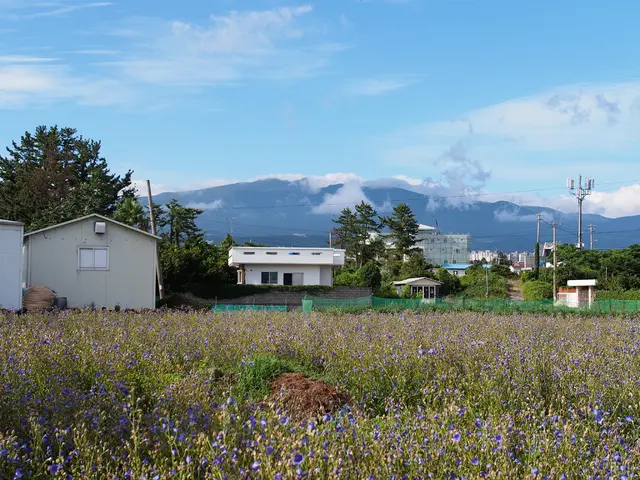Crowd celebrates denial of proposed solar farm on water
In the heart of Portugal, a proposed floating solar plant in the Cabril Reservoir has sparked heated debate among local communities and environmental groups. The project, a venture by Voltalia, aims to generate clean energy but faces mounting opposition due to concerns over its potential impacts on the environment, socioeconomics, and firefighting capabilities.
The Coimbra Intermunicipal Community (CIMBB) has been a vocal critic of the project, expressing grave concerns about its negative impacts on the region's population, environment, and socioeconomics. The CIMBB, an association that promotes social, economic, and cultural development in its member municipalities, believes the project would severely compromise the Cabril Reservoir's ability to supply aerial resources for firefighting, irreversibly change the landscape, and cause serious socioeconomic damage, limiting nautical activities.
The environmental impact study for the project acknowledges negative impacts on fauna, flora, water quality, and the landscape. Large-scale floating PV systems can alter water temperature and sunlight penetration, potentially affecting aquatic life. The installation process and the presence of equipment could introduce pollutants or alter water chemistry. Changes in water conditions might impact local species' habitats and ecosystems.
The project, planned for the municipalities of Pedrógão Grande, Pampilhosa da Serra, and Sertã, could provide economic benefits through job creation and local investment. However, there may be concerns about the aesthetic impact of such a large installation on a natural area. The associated overhead power lines reach into Castanheira de Pera, Figueiró dos Vinhos (Leiria), Penela (Coimbra), and additional municipalities.
The Association of Portuguese Architects (APA) has also issued an unfavourable opinion on the project. A joint opposition position was adopted by the Intermunicipal Communities of the Coimbra Region and the Leiria Region on April 14th. The CIMBB has promised to remain vigilant regarding the floating solar plant project and hopes for its complete cancellation.
As of the latest updates, specific details about the status of the Cabril dam floating photovoltaic project are not available. Projects like these typically go through extensive environmental and social impact assessments before proceeding. For the most accurate and up-to-date information, it is recommended to check with official sources or local news outlets that may be following the project's development.
- In light of the ongoing debate, local environmental groups have expressed their concerns about the potential negative impacts of the proposed floating solar plant in Portugal on fauna, flora, water quality, and the landscape.
- Beyond environmental concerns, the Association of Portuguese Architects (APA) has issued an unfavourable opinion on the aesthetic impact of the large installation on a natural area, particularly in the municipalities of Pedrógão Grande, Pampilhosa da Serra, and Sertã.
- The Coimbra Intermunicipal Community (CIMBB) and the Intermunicipal Communities of the Coimbra Region and the Leiria Region have united in opposition to the project, pointing out potential socioeconomic damage, limited nautical activities, and compromised firefighting capabilities due to the project's impact on the Cabril Reservoir.
- Despite potential economic benefits such as job creation and local investment, there are growing doubts about the sustainability and appropriateness of the project in the renewable energy industry, given its placement in a sensitive environmental and cultural area.
- As the Cabril dam floating photovoltaic project progresses, it is essential to closely follow news updates and official sources to determine its environmental, social, and economic implications, considering the involvement of various Portugal-based industry, finance, environmental science, and architectural organizations.




